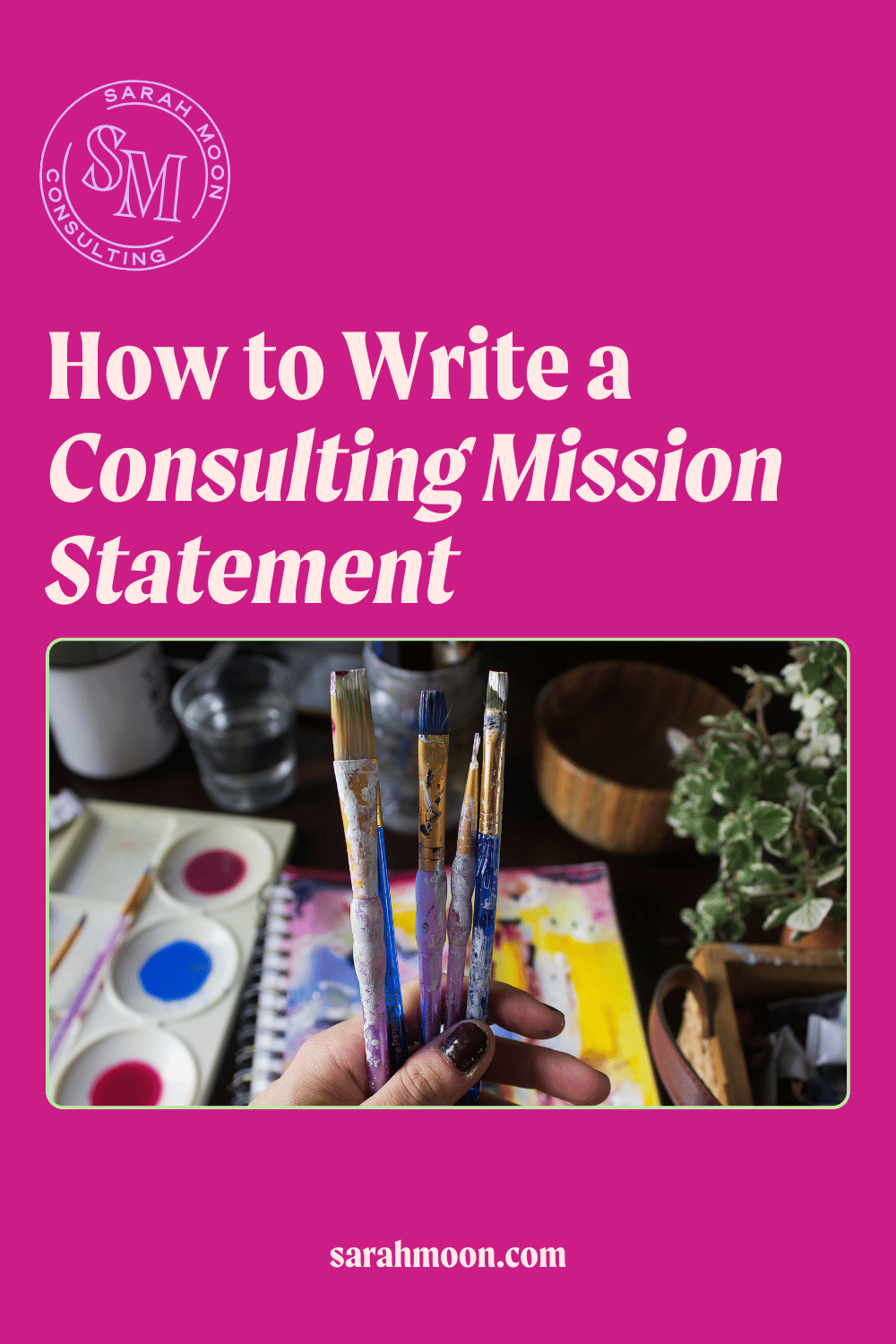How to Create Your Mission Statement/Positioning Statement for Your Consulting Business
Note from Sarah: This article was originally sent via my newsletter. Newsletter subscribers receive essay style pieces like this before anyone else. Click here to subscribe! This article was updated on 12/24/2025.
One of the themes that I discovered during a recent listening session talking to people in my audience was that it's very hard to define what you do, who you do that thing for, and how you differentiate.
The real question people were asking, without even knowing it was actually:
How do I write a mission statement for my consulting business?
This is one of those small things that no one mentions when we hang out our shingles on our own. Big companies pay large marketing firms massive bucks to massage and workshop these statements, but for most of us, our top of mind is signing clients and delivering top notch work. So, we get stuck into our consulting work and don’t even do it. Until we’re faced with the challenge of not being able to article our what and why.
What’s a mission statement?
A mission statement is a short and clear statement of what you do and for whom. It’s that simple.
What do you need to know before you create a mission statement for your consulting business?
You need clarity on what you’re offering, who it benefits, and why you stand out from similar businesses. If you’re brand new to business, you may still be in the information gathering stage, so bookmark this page and come back here when you have concrete answers to these questions.
What’s the framework for writing a mission statement?
My method is one cobbled together from a bunch of sources, including a book I love that’s now, sadly, out of print, Nicely Said. I particularly appreciate Nicely Said's focus on positive differentiation instead of competition, and their emphasis on it as a mission statement instead of positioning like many mission statement frameworks do (for me that's an important point of divergence—mission statements have bigger meaning in my eyes).
The way I formulate a simple mission statement is,
"I do A for B. I'm different because of C."
So, for example, I'd say about us something like,
Sarah Moon Consulting provides strategic, research-informed marketing and business consulting for subject matter experts like attorneys, financial planners, creatives, and consultants. We're different because we avoid gimmicks, trends, and nonsense and instead focus on honest, authentic, thought leadership-focused techniques to achieve our clients’ goals.
How do consultants use their mission statement?
This is for you to use internally or in casual conversation—you can spiff it up for marketing and such but it helps keep focus as a jumping off point when talking about what you do or making a crucial business decision?
How often should you revisit a mission statement?
Review your mission statement quarterly, just like you should your big picture marketing plans and financials. This is part of your business infrastructure, so treat it with that level of importance.
Ask yourself in those review sessions:
Does a tactic you're considering feed that mission or is it way off course?
Is your mission/positioning statement still serving you?
I hope this helps if you're struggling with talking about what you do and articulating your value in your marketing. And, if you’re ready to ditch the DIY and work with a 20+ year pro in this area, learn about Spark Sessions, where we develop your mission statement, messaging, and a whole lot more!






Are lead magnets for consultants dead? Not so fast! We dive into what’s working, what’s not, and the one key ingredient to a successful consultant lead magnet in 2026.